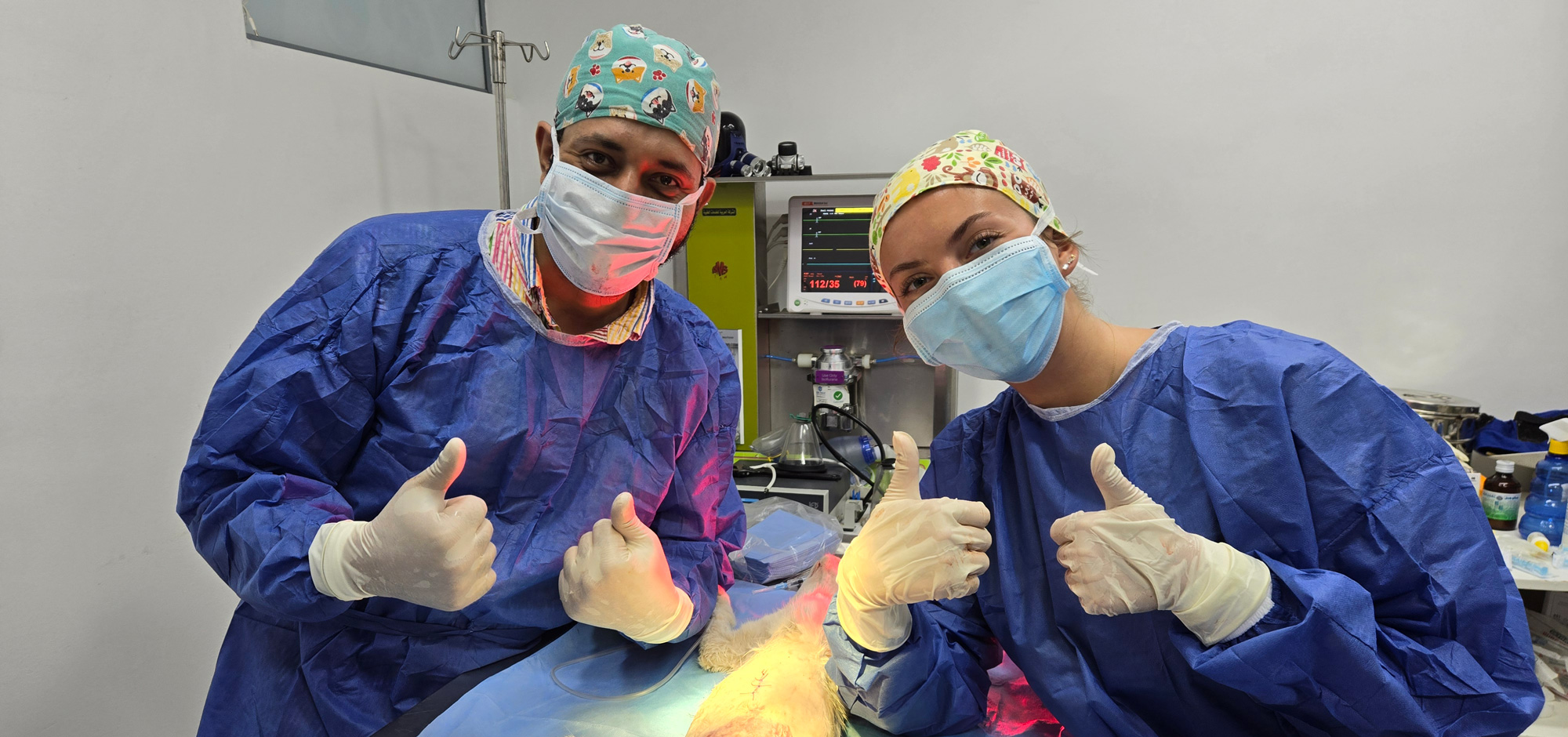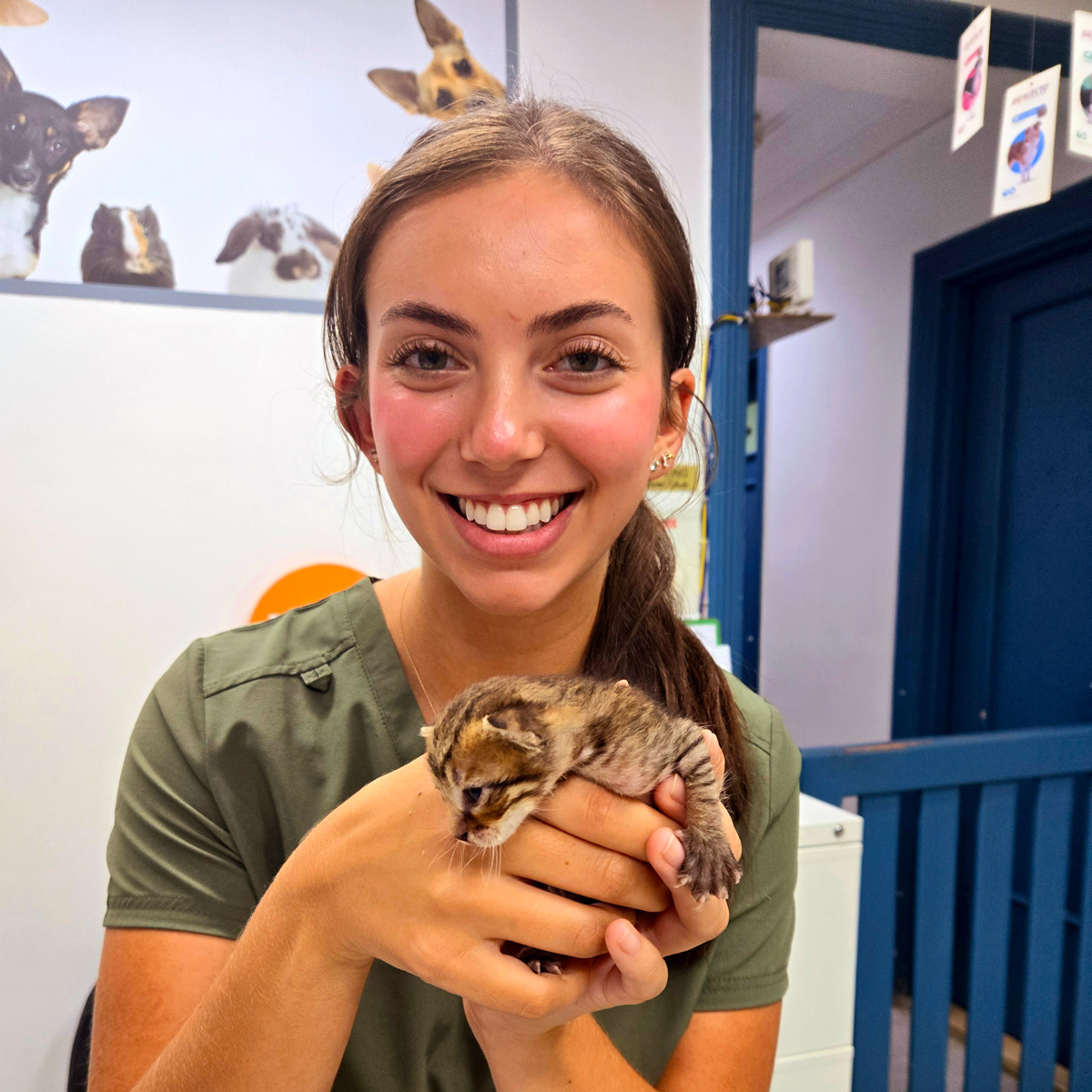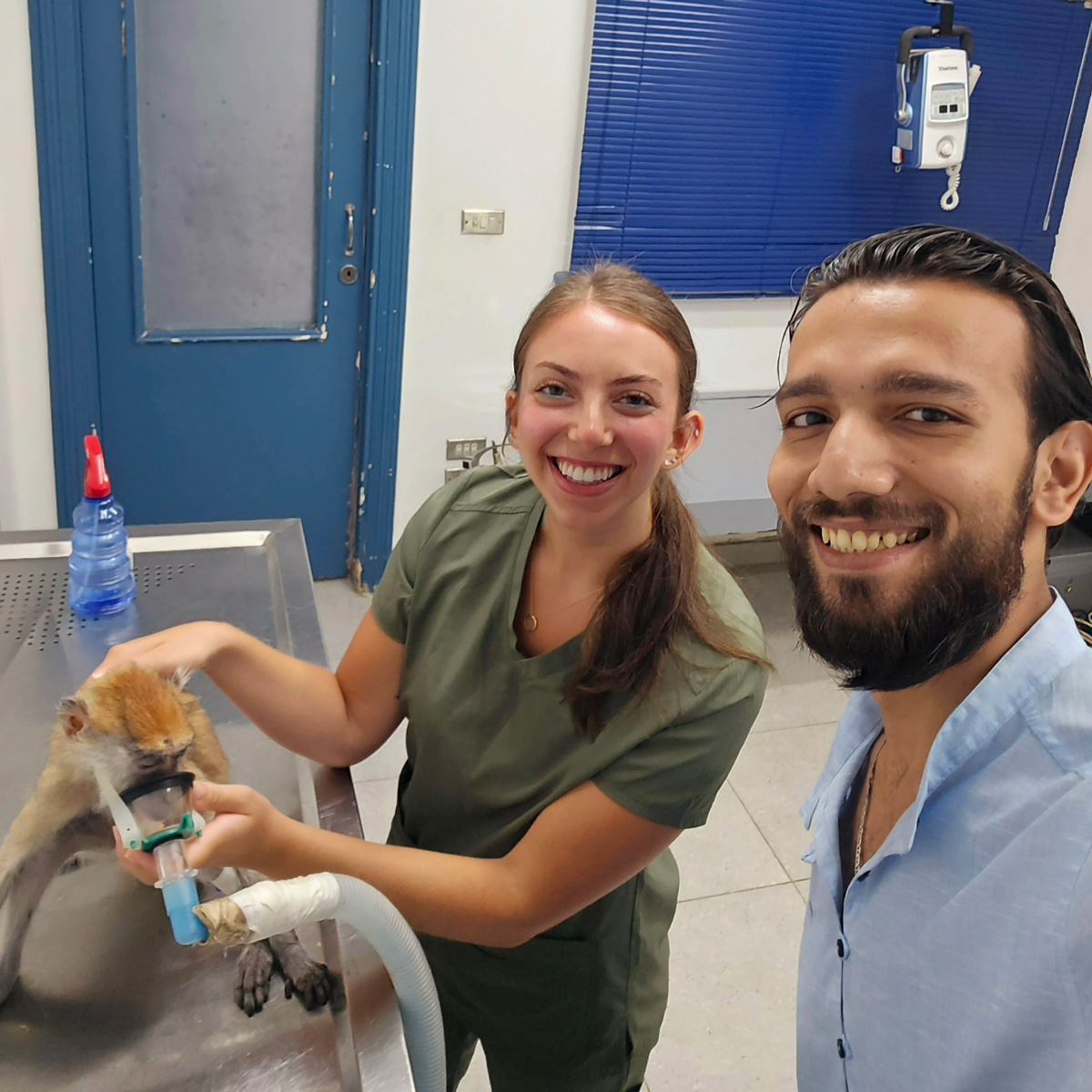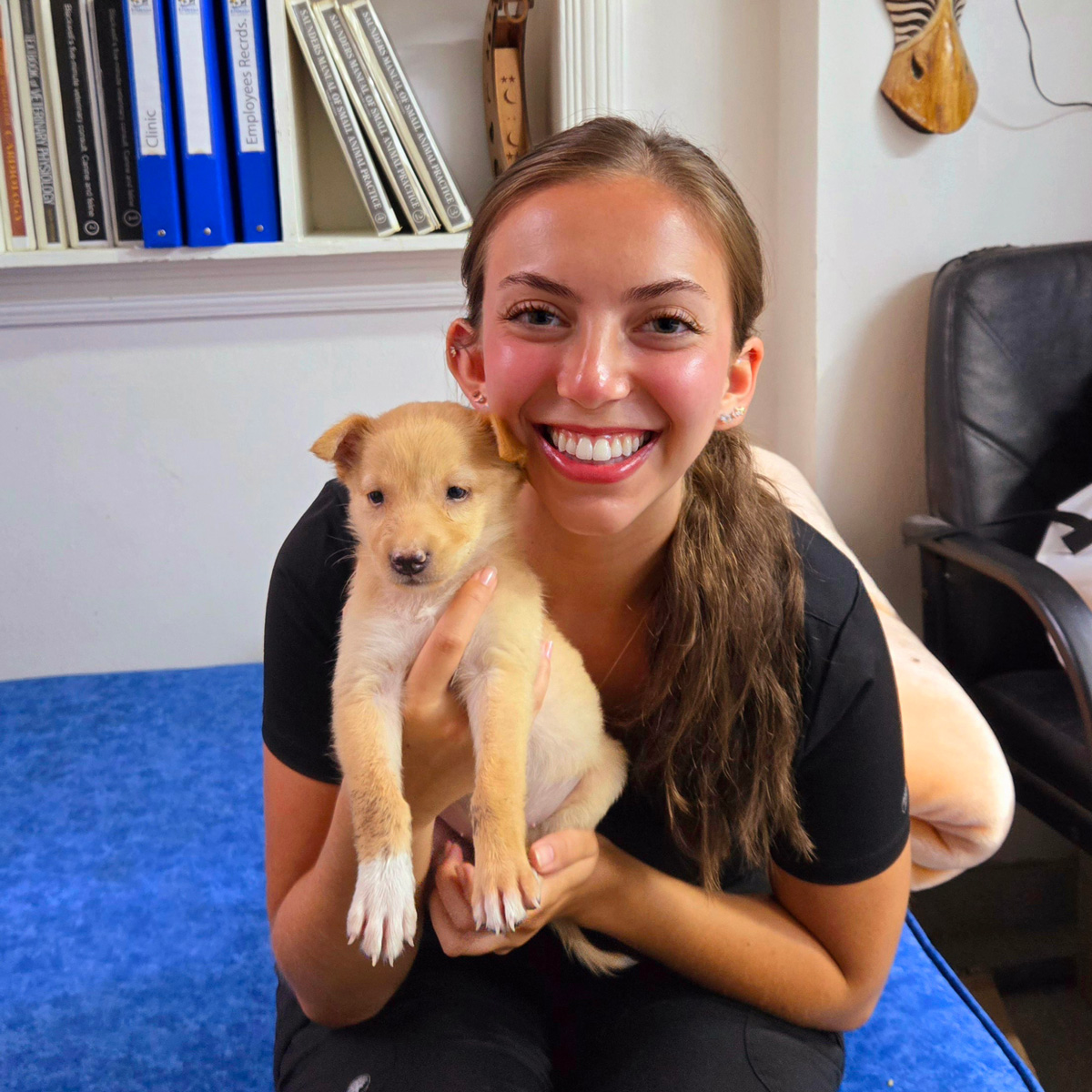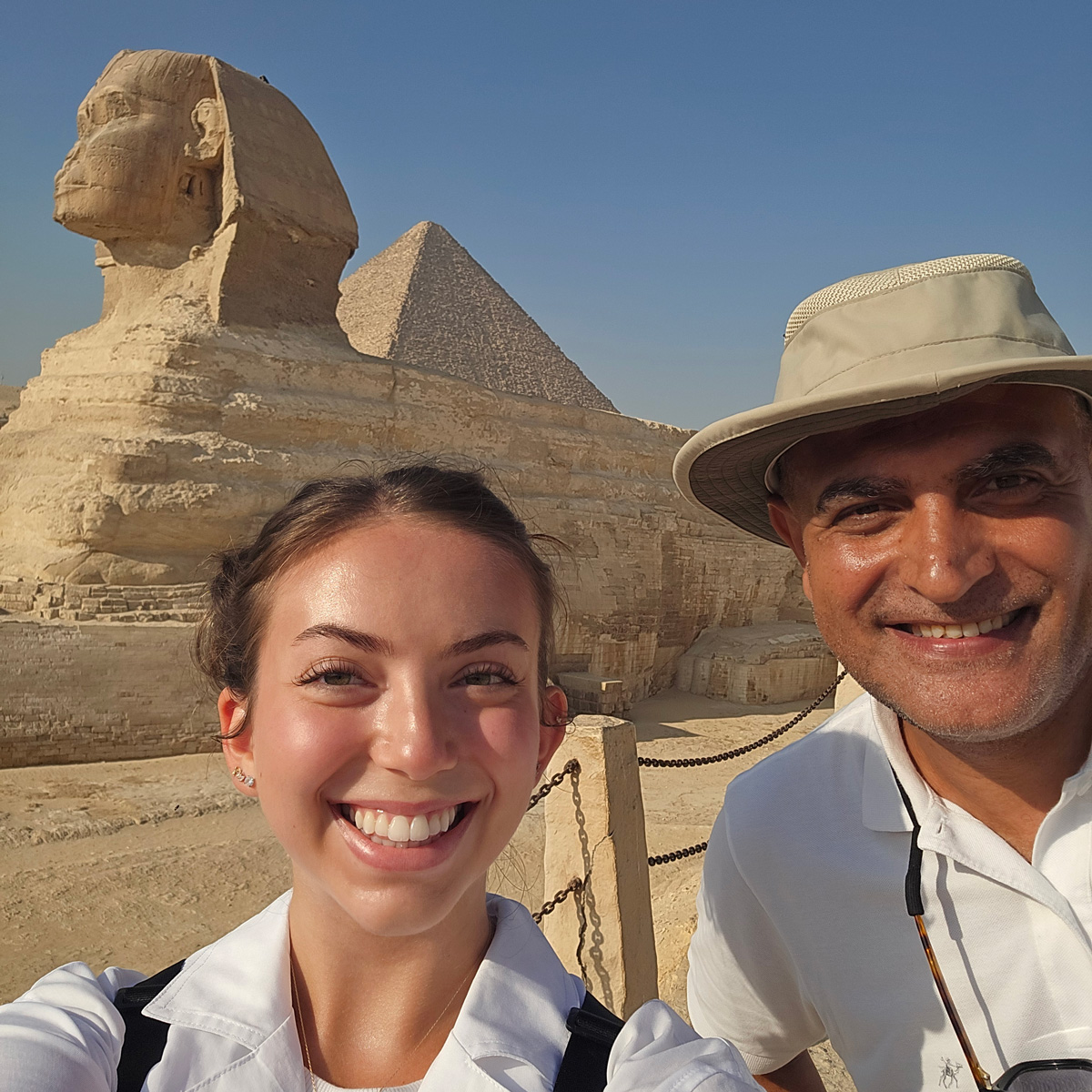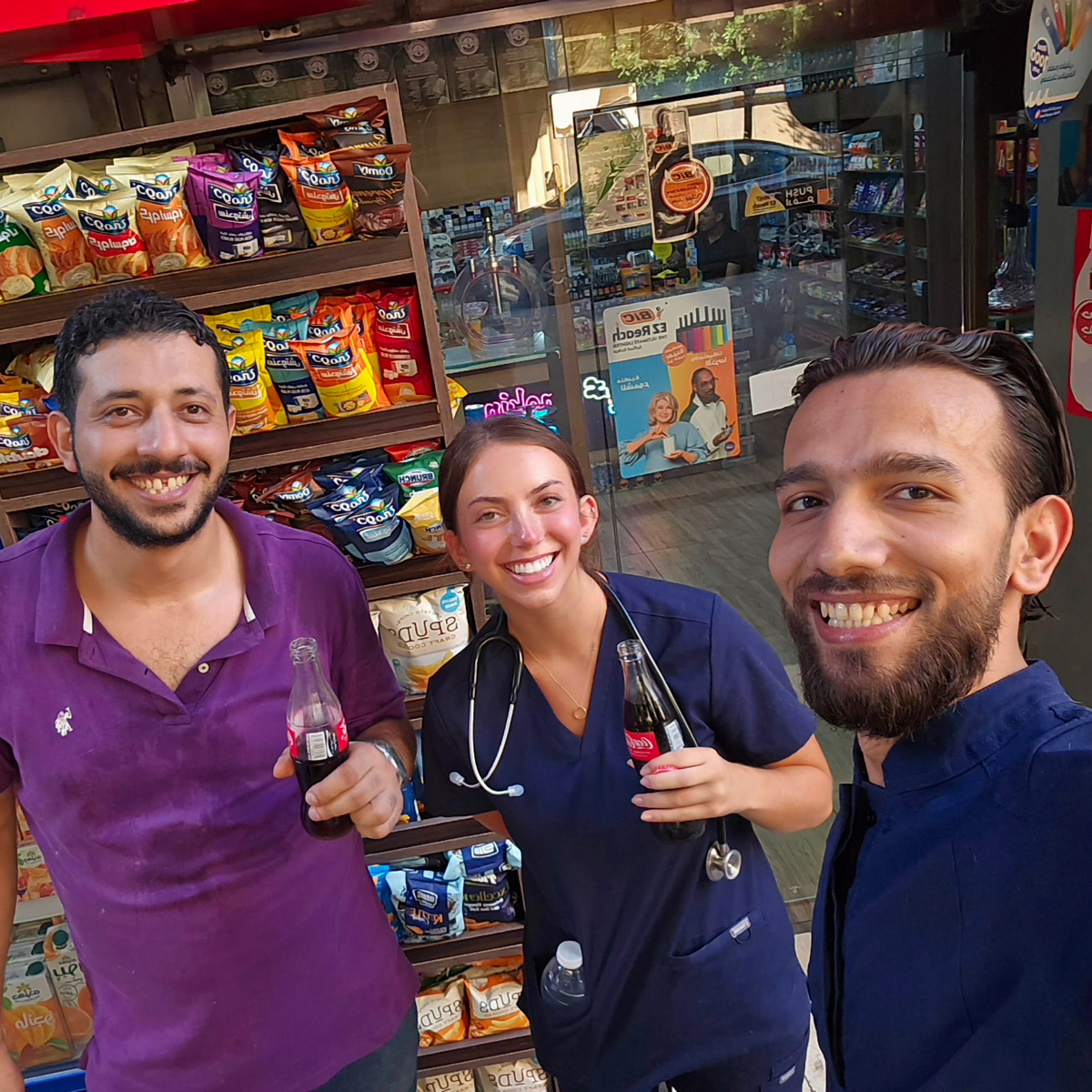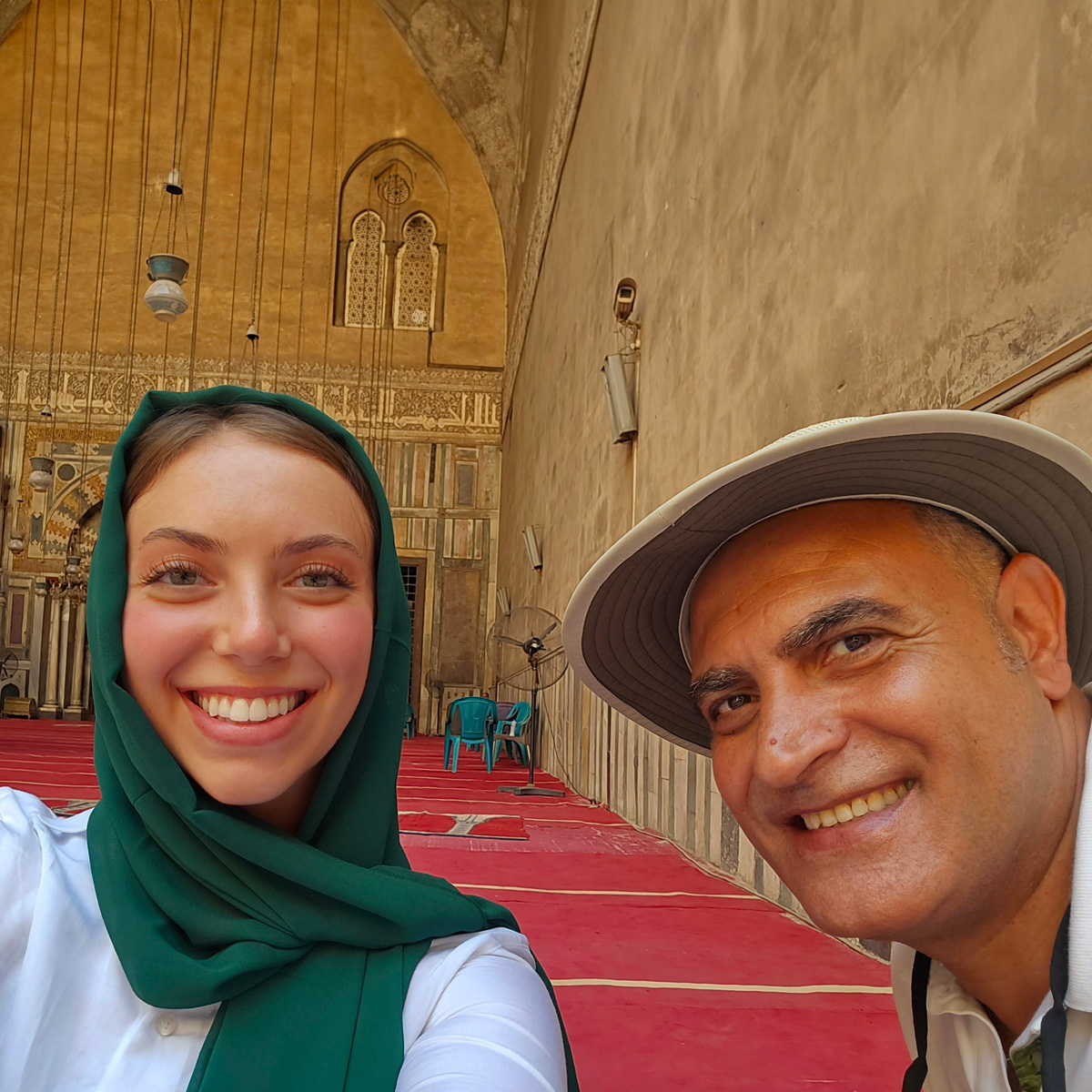Q&A
What type of practice were you working in?
There were four other doctors who worked there with Dr. Shawky. There are no veterinary technicians there, so they would have to do everything. It was really all hands on deck.
It was mostly small animals – mainly cats and dogs. A lot of it was working a lot with the street dogs because there's a really big street animal population, especially on Zamalek because the surrounding cities, especially in Cairo, they'll actually bring their animals and dump them onto the island.
What did you day-to-day look like?
Basically, the clinic is 24/7, so we would work more of the afternoon and evening shifts. We would start around noon and go to the clinic and then we'd be there until like three in the morning doing all our stuff. (For example), we would get up, feed the street animals making sure that they were still all OK. And then getting to the clinic, making sure that everyone has morning medications, and they also do boarding there, so just making sure that all the animals who aren't sick are still OK.
And then it was basically just walk-ins 24/7 from all over. There were also usually a couple cases a day that would be brought in that were abuse or abandonment or things like that that we'd take care of. In the evening usually is when we would do more of our surgeries and things like that – any spays and neuters that needed to get done and then any of the emergency cases. Then run home and get a couple hours of sleep and do it all over again.
At the time of the internship, you had just finished up your first-year of veterinary school. What did this internship add to it?
That was the one of the biggest culture shocks for sure. The first day I got there they threw me right into the OR and I did a feline neuter. They really wanted help. With the way the schooling (in the U.S.) works, I was quite knowledgeable about some of the things, and I was able to help a lot. I was able to do full spays, neuters and everything like that. And they would have you be lead surgeon. And daily meetings and everything like that, they would just get you involved. Like what do you think our treatment plans should be. What medications do you think would work best? Especially with a lot of the strays, they would have complicated cases where there's not really like one standard care of treatment, so you really just have to brainstorm what's going to work.
What was it like working with Dr. Shawky?
He's definitely very passionate about veterinary medicine. He would really just kind of let me do it. Like the first spray that we did, he did it, and I assisted him. And then the second one, it was me. Then at the end of the night, he would teach me suture techniques and things like that. We would go through the different surgical tools, their names and everything, so that I could assist him in surgeries. It was very hands on, which I appreciate because that's how I learn best.
How do you feel this experience helped inform where you're headed in your education and also in your future career as a veterinarian?
I think it opened a different avenue that I wasn't aware of. Here we have strays, but it's nothing like over there. It's a whole different population with new problems that we don't really have here – new diseases and new accidents that you just don't really see in everyday house pets. It opened my eyes to a new avenue that I could pursue traveling to other places and helping out over there – like relief veterinarian work; I think that would be really interesting. Because even with my very, very limited education, I was able to show them things that they didn't know as much as they were teaching me.
